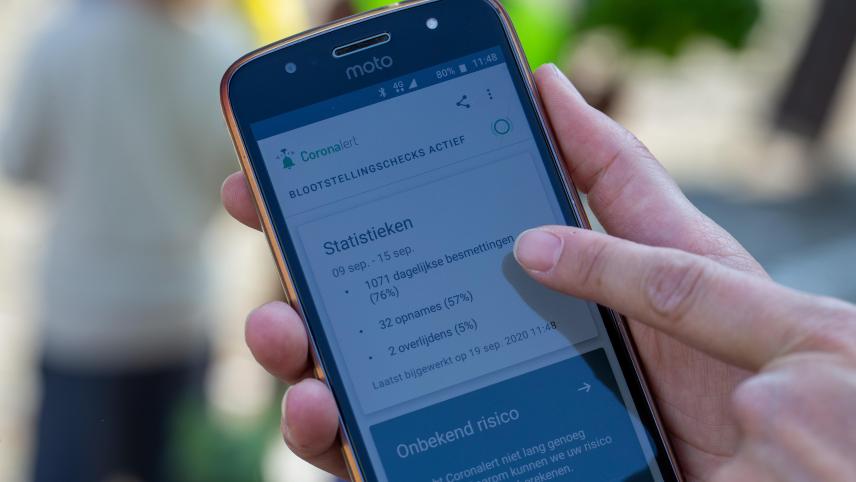Belgium is looking to streamline its test and trace system, as centres tasked with reaching out to high-risk contacts of infected people are completely overrun as a result of the worsening coronavirus situation.
Soon, people infected with the virus will receive a link by text to log potential high-risk contacts on the mijngezondheid.be website, to speed up the sending of a test code and a quarantine certificate to people who are at risk of being infected.
Those notified of a high-risk contact through the Coronalert app, of whom some currently have to wait days before getting a code to get tested, can also register online and receive a test code.
This was decided by Belgium's various Ministers of Health during the inter-ministerial conference on Wednesday, and confirmed during an interview for VRT's Laat show by Karine Moykens, who chairs the Inter-Federal Committee on Testing and Tracing.
As part of the new system, of which the changes are expected to be implemented in early December, it was also decided that if a (potentially) infected person does not undertake these steps themselves, for example, if they are too ill, have insufficient digital skills or were simply negligent, the call centre would still intervene.
More tests, understaffed centres
Under the current system, an infected person should wait to receive a call from a centre to check on their potential high-risk contacts - someone who had face-to-face contact with an infected person for at least 15 minutes without keeping 1.5 metres distance - however, centres have reached their limits, as Belgium is currently breaking records when it comes to coronavirus figures.
In the last week, the highest number of coronavirus tests taken in seven days was recorded since the start of the pandemic in Belgium. Last Friday, 131,885 people were tested, a Belgian daily record since the outbreak of the coronavirus.
Meanwhile, last Monday, according to a still incomplete count, at least 23,621 infections were registered in Belgium, a new record, replacing the previous one set during the height of the second wave when 22,221 cases were reported in one day.
Related News
- Additional staff sought to fix failing contact tracing system
- Belgian PCR test labs can't cope with influx of demand
While the number of tests being taken increased, the centres' manpower decreased, further adding salt to the wound. "The number of tests is not at its limit, but the number of staff is," Moykens said.
"In one day, 34,000 infected people are contacted. We can no longer achieve that. We not only have to speak with the high-risk contacts, we also have people who call us themselves."
It is hoped this new tool, which will see an infected person enter the name and mobile phone number or e-mail address of their high-risk contacts so they can receive test codes, will reduce pressure on the centres, as it would mean infected people no longer need to be called.

